Names Have Meaning: A Research Guide for Baby Names and Family Names
Like any word in the dictionary, a person’s name has meaning. The study of names is called onomastics or onomatology. Onomastics covers the naming of all things, including place names (toponyms) and personal names (anthroponyms). Given names, often called first names, and surnames, often called last names, usually derive from words with distinct origins.
The most common reasons to explore the field of personal names in onomastics is for genealogical research and for choosing a name for a child. The Milstein Division of United States History, Local History and Genealogy is an excellent place to start research into personal names.
Choosing a Baby Name
For most, choosing a name for a newborn is an activity of utmost significance. “The act of naming a newborn infant is an important rite of passage in society.” (Nuessel). Filling in a birth certificate, making a name announcement to family members, and holding a formal religious naming ceremony all represent “a process of individuation in which a person becomes a separate entity who will ultimately develop a unique personality.” Nuessel also attests “most people recognize that giving a name to a child is a significant social function with profound and lifelong consequences.”
In The Anthropology of Names and Naming, this significance is upheld: “The right to a name is enshrined in the UN Convention on the Rights of the Child, recognizing the implications of carrying a name that begin at the earliest moments of social being.” Names help a person establish an identity, and the process of “naming is a crucial aspect of converting ‘anybodies’ into ‘somebodies’.” Names also help tie a new child into a family identity because “the act of naming has the potential to implicate infants in relations… Individual lives thus become entangled—through the name—in the life histories of others.” (Bodenhorn).
Finding the Meanings of Names You Like
A name dictionary is the best resource, though it is a good idea to compare entries in more than one dictionary as they may differ in methodology and scholarship. A reliable online dictionary is BehindtheName.com. Name dictionaries are available as general dictionaries or specialized ones, such as by language or culture, e.g. Your Name is Your Blessing: Hebrew Names and their Mystical Meanings and 1,001 African Names: First and Last Names from the African Continent, or thematic, e.g. The Arthurian name dictionary.
Looking for a Related Name
Name dictionaries will list cognate names. For example, if you wanted a feminine version of Charles, you could choose from Charlene, Charlotte, Carole, Caroline, Carolina, Carly, Carla, Carlotta, Carolyn, Carrie, Charlize, as well as other names and a variety of spelling variants with “Sh” and “K”.
Looking for Inspiration
If you are searching for a name with a particular meaning, you may want to use a reverse dictionary: e.g. First Name Reverse Dictionary: Given Names Listed by Meaning.
Finding the Popularity of Names
Each year the Social Security Administration releases statistics for the registered births of the United States for the previous year. You can also use the SSA data to track previous years’ popular names back through 1880 or see what is popular by each state. Many other countries also compile and release this data to the public annually.
Finding the Meaning and History of Your Family Name
The meanings of surnames can often tell us a bit about our ancestors’ lives, sometimes including the region from which they came or the occupations for which they were known. However, one should not just guess. “Guessing the meaning of a surname is a dangerous game to play. What seems to be an obvious explanation is often completely wrong. One reason for this is that surnames have changed considerably in form over the centuries, and another is that even where the word is the same it may well have had a very different meaning at the time when surnames were being formed.” (David Hey, Family Names and Family History).
Many surnames fall into these general types:
- Locative : the name is also a place name, usually where the family was from at some point on their timeline. This can also include a feature of the landscape such as Hill or River.
- Occupational : the career of the person. e.g. Baker, Brewer, Smith, Miller. This can be less obvious for lesser known or outmoded careers such as Cooper (barrel maker) or Fletcher (arrow maker).
- Descriptive : A distinguishing characteristic of the person. e.g. Short, Fairchild, Friend.
- Descendant / Relationship: a prefix or suffix added on to an ancestor’s given name to show kinship. e.g. Robertson, Pierrot, Fitzpatrick, O’Connor, Tomkins, MacGregor.
A good name dictionary is created using historical evidence from documents to locate the name throughout history. The study of surnames in onomastics requires a combination of language studies and genealogical methods to match the evolution of words with the individuals who used those words as their names and how that usage changes over time. Check the introduction of the name dictionary for methodology on how the data was compiled. It is also a good idea to compare the entries for a name in several name dictionaries. A name dictionary will often provide an immediate answer to the meaning of the name and often its etymology, but not your family’s genealogy. However, your family’s genealogy may help you discover the meaning of your surname (Redmonds).
One of the best reference works to consult for a surname origin is The Dictionary of American Family Names, also available via Oxford Reference online.

The Dictionary of American Family Names contains more than 70,000 of the most commonly occurring surnames in the United States, giving their comparative frequencies, linguistic and historical explanations, selected associated forenames, and occasional genealogical notes. The product of a ten-year research project gathering the contributions of thirty linguistic consultants led by Editor in Chief Patrick Hanks, it explains the meanings—some intuitive, some amusing, and some quite surprising—of the family names for more than 90 percent of the U.S. population.
Other surname dictionaries are generally specific to the country of origin or dominant culture. Some of the most popularly requested reference works include:
French: Encyclopédie des noms de famille
German: Dictionary of German names
Irish: Sloinnte uile Éireann = All Ireland surnames | Surnames in Ireland
Italian: I cognomi d'Italia : dizionario storico ed etimologicoJewish: Jewish family names and their origins : an etymological dictionary
Scottish: The surnames of Scotland : their origin, meaning, and history
Spanish: Diccionario de apellidos españoles
Origins of the Use of Surnames
Different cultures began using surnames at different times and not uniformly across social classes. In general, landowners tended to take the names of their estates long before working and peasant classes adopted surname usage. In China, surnames amongst nobility date back to circa 2800 BCE. In Spain, surnames amongst landowning aristocrats date back to the 10th century. In the United Kingdom, English surnames date back to the 14th century, yet Wales and the Shetland Islands did not use surnames consistently until the 19th century. In Iceland, surnames are not hereditary, and a child is named after their parent, usually the father, with the suffix -son or -dottir. African-Americans, Eastern European Jews, Native Americans, and Dutch colonists of New Amsterdam largely had surname customs imposed onto them by outside agencies. To understand the origins of a surname, you will need to investigate the distinct history of family names in that culture (Bockstruck). Surnames can also originate independently in different cultures. Lee (alternate spelling Li) is a popular surname in China, Korea and English speaking countries, having arisen independently in China and England and spreading outward from those places.
Why so many variations of the same names?
“Names have often had different forms before they settled down to an accepted spellings and pronunciation. Patrick Brontë’s name was recorded as Branty, Brunty, Bruntee, Prunty and so on before he made his idiosyncratic choice of spelling” (Hey). William Shakespeare signed his name with at least three different spellings (Davis).
Essentially, corruption of speech, regional accents, translation, and conscientious name changes cause evolution over time. “It has long been recognized that any surname can have a variety of spellings in the course of its history. Some of these are predictable, reflecting differences of pronunciation between one region and another, or between one century and another, others are the result of ignorance, misunderstanding or even deliberate remotivation. It is probably a much more complex aspect of surname development than is generally realized, particularly in the case of migrating surnames which had no obvious or apparent meaning” (Redmonds).
An illiterate or semi-literate person may have had no say on how their name was written on documents. In addition, spelling was more negotiable in the past and the same name spelled in a variety of ways would have still been considered to be the same name. An example representing the same family: Mally, O’Mally, Meahley, Malley, O’Malley, Mealy, Ó Máille etc.
Another common spelling morph occurs when a non-English name retains its pronunciation in another language, but the spelling is adapted to English phonetics. Examples provided by Bockstruck include Tacquet (French origin) morphing to Tacket and Schoen (Dutch origin) morphing to Shane. Bockstruck also recounts this tale of surname morphing involving sound-alikes and translation:
“in Lincoln County, North Carolina, descendants of a colonial German progenitor named Klein held a family reunion. In addition to descendants who appeared under that name, direct male line descendants also appeared as Cline, Short, Small, and Little, all of which were English equivalents.”
Strictly adhering to one form of spelling of a name becomes more consistent over time as areas adopt forms of legal identification, such as passports and state-issued driver’s licenses, and even more so as those records are kept in computer databases where the spelling needs to be exact to retrieve the correct result.
Spelling Fixations
Newcomers to genealogy research can be fixated on the spelling of names, often dismissing a spelling error to mean that the family found in a document was not the correct one for whom they were searching. This is roughly equivalent to refusing the drink you already paid for at a coffee shop because the barista misspelled your name on the cup.
Names in Translation
For many, translating a name from one language to another is not the same as changing a name since the meaning of the words remains intact. In The Name is the Game: Onomatology and the Genealogist, Bockstruck cites this example:
“Theophilus Taylor was a settler in the Carolina piedmont. At the time of his arrival in the British colonies he bore the name of Gotlieb Schneider. He eventually translated both his forename and surname into English and became Theophilus Taylor. Making that discovery ought to have allowed a genealogical researcher to bridge the Atlantic Ocean and to locate his baptismal entry in his village of origin in Germany. The entry in the parish register, however, was actually in Latin, and his name appeared as Amadeus Sartor.”
Bockstruck cites another language name morph in the case of a Scotsman named Ian Ferguson. Ferguson moved to an area of the colony of New York settled by Palatine Germans and amongst those German speakers was known as Johann Feuerstein. Many years later he moved on to Philadelphia and his name was rendered in English as John Flint. His grandson, Peter Flint moved to French-speaking Louisiana and his name was recorded as Pierre a Fusil. When moving on to Texas some years later, the name was translated from Fusil to Gunn. In three short generations the surname had morphed four times to fit into the colloquial language of the area where the person was living.
This practice is not entirely over. If you read a newspaper article in Portugal about Queen Elizabeth II of the United Kingdom, you will find her name written as Isabel. Likewise, if you read an American newspaper about a visit from a foreign diplomat of a country that uses a non-Roman alphabet, you will see their names rendered into the Roman alphabet instead of being printed in Chinese, Korean, Russian, Japanese, or Arabic, etc. Although this process is somewhat more standardized now than it has been in the past, you will still find variations in translations. You may remember different news organizations reporting on Osama bin Laden (most common) as also Usama bin Laden, Osama bin Ladin, Ussamah bin Ladin, and in French media as Oussama ben Laden. Some members of this family use the surname Binladen on western paperwork.
One-Name Studies
One-Name Studies are the research on all individuals with one particular surname (and usually its variant spellings). One-Name studies are not limited to those who are related to each other, and include all individuals with the same name in the past or present, though there are some studies to that limited the study to certain geographic boundaries such as a country or county. Indeed, surname maps can be useful for genealogy research. The ultimate goal of most one-name studies is to identify the origin of a name, particularly locative-based surnames. The Guild of One-Name Studies, active mostly in in the United Kingdom, is an organization of many of these one-name societies and researchers.
Names Can Be Changed
Although there is a formal legal procedure to the process, usually anyone can change their name for any reason in the United States. The process is different in each jurisdiction, but in general, if a person files the correct paperwork in the correct court of law, the name change will be granted. This process is simplified in most states for those who change their name after marriage. According to LegalZoom, common reasons for name changes currently are
- Taking the natural father's name (e.g., after being born out of wedlock or adopted).
- Changing to the mother's maiden name (e.g., after a divorce).
- Identifying with a foreign nationality (e.g., to show grandparents' nationality).
- A cumbersome name (e.g., difficult to spell and/or pronounce).
- Professional identity (e.g., legally maintaining a maiden name or changing to a pen name).
- Gay or lesbian (e.g., both partners want to share the same last name).
Few are denied requests for name changes, though you cannot legally change your name to avoid debts or prosecution, or with the intent of defrauding someone. This has generally been true throughout United States history, and there is a likelihood that you may encounter a relative that has changed his or her name when doing genealogical research. However, the name was not changed at Ellis Island, but a person may have elected to change their name during the naturalization process. Current applications for naturalization still allow for name changes as part of the process. In some modern cases, people are “reverting” to a version of the name their ancestors once had. For more information about name changes during the naturalization process, see New York State Archives: Records of Name Changes in Naturalizations.
Some name changes are to avoid certain associations. For example, to bypass infamy of others with the same family name: there are few people with the surname Hitler. Other name changes are related to colloquial terms, perceptions of crudeness, and slang. Bockstruck cites legal name changes for the surname “Hoar” which so closely sounds like “whore” and names with the suffix “-cock” such as Woodcock, Haycock, and Glasscock.
Learn more about the study of names:

Journals
- Names : A Journal of Onomastics print | electronic
- Journal of One-Name Studies print

Books
- The Name is the Game: Onomatology and the Genealogist / Lloyd de Witt Bockstruck
- Family Names and Family History / David Hey
- Surnames and Genealogy: A New Approach / George Redmonds
- Research Your Surname and Your Family Tree: Find Out What Your Surname Means and Trace Your Ancestors Who Share It Too / Graeme Davis
- An Alphabetical Guide to the Language of Name Studies / by Adrian Room
- The Study of Names: A Guide to the Principles and Topics / Frank Nuessel
- The Anthropology of Names and Naming / edited by Gabriele vom Bruck, Barbara Bodenhorn
Read E-Books with SimplyE
 With your library card, it's easier than ever to choose from more than 300,000 e-books on SimplyE, The New York Public Library's free e-reader app. Gain access to digital resources for all ages, including e-books, audiobooks, databases, and more.
With your library card, it's easier than ever to choose from more than 300,000 e-books on SimplyE, The New York Public Library's free e-reader app. Gain access to digital resources for all ages, including e-books, audiobooks, databases, and more.
If you don’t have an NYPL library card, New York State residents can apply for a digital card online or through SimplyE (available on the App Store or Google Play).
Need more help? Read our guide to using SimplyE.
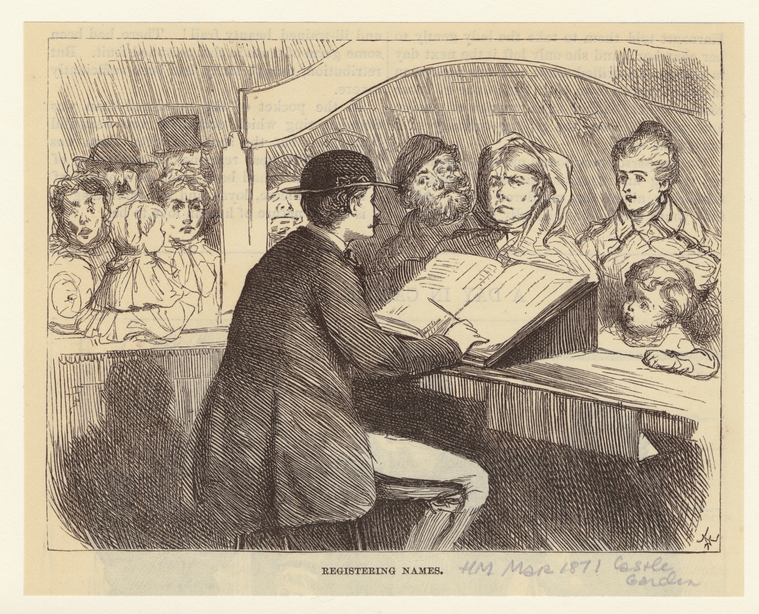
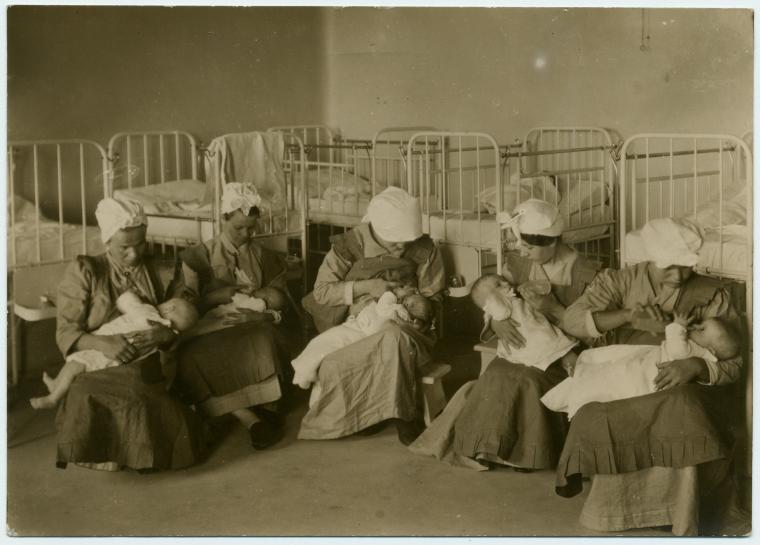
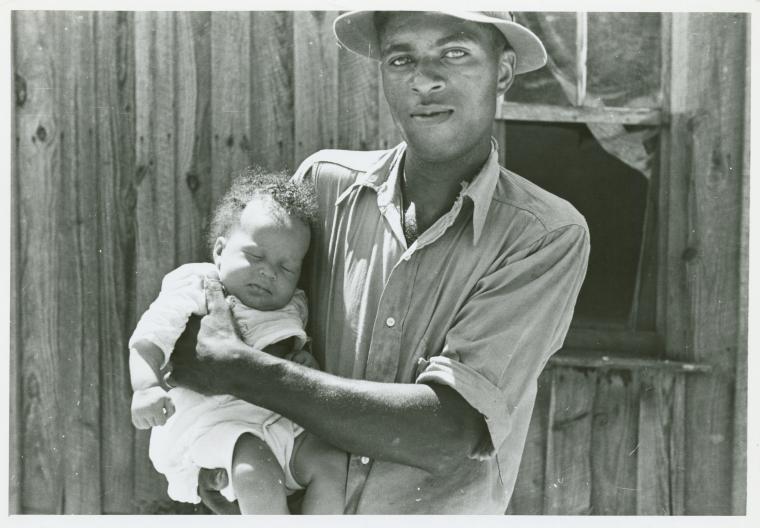
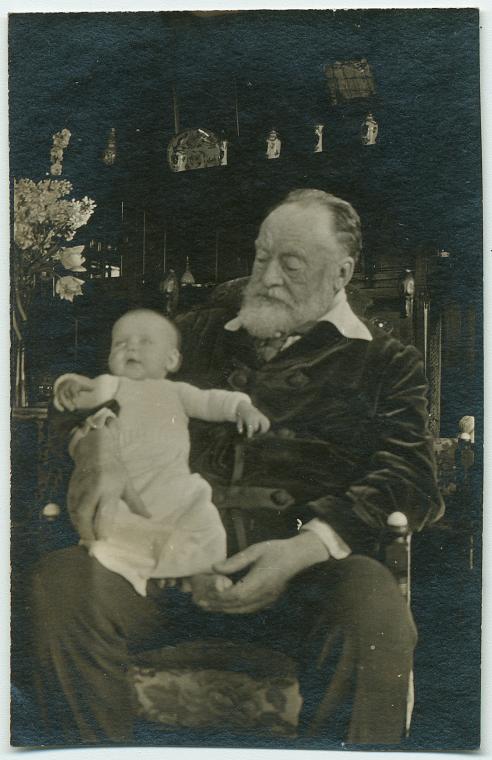
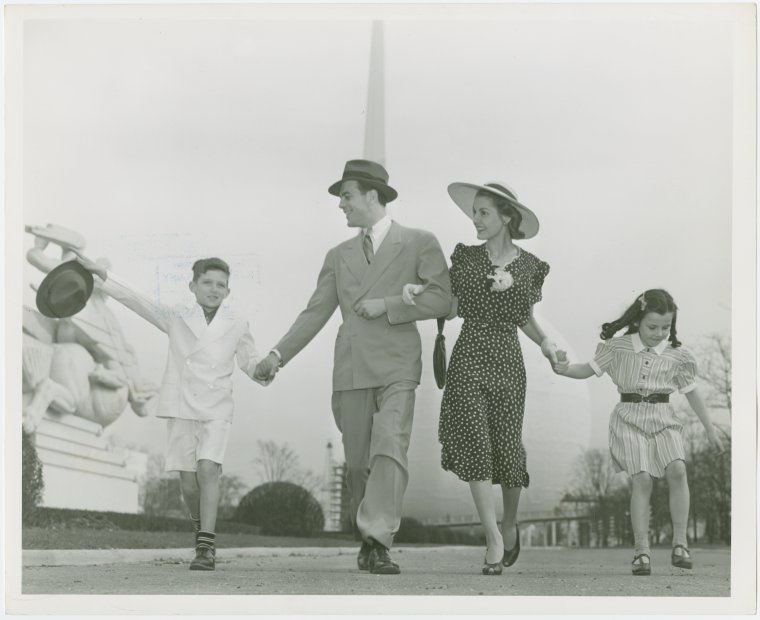
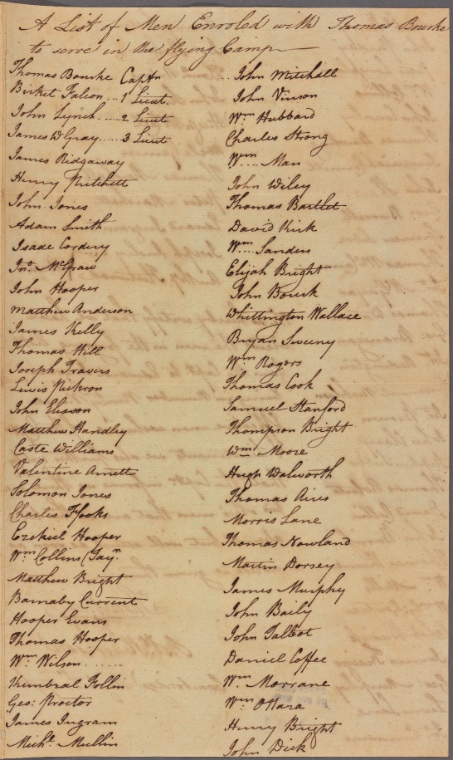

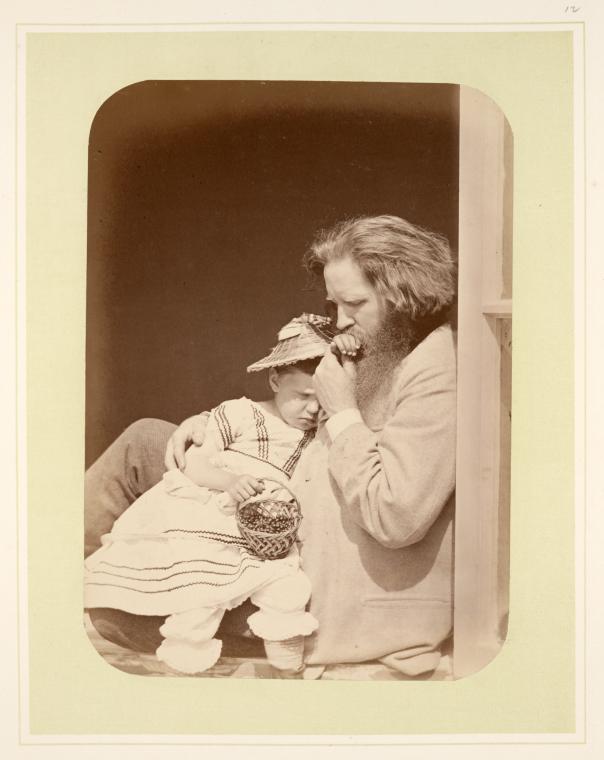
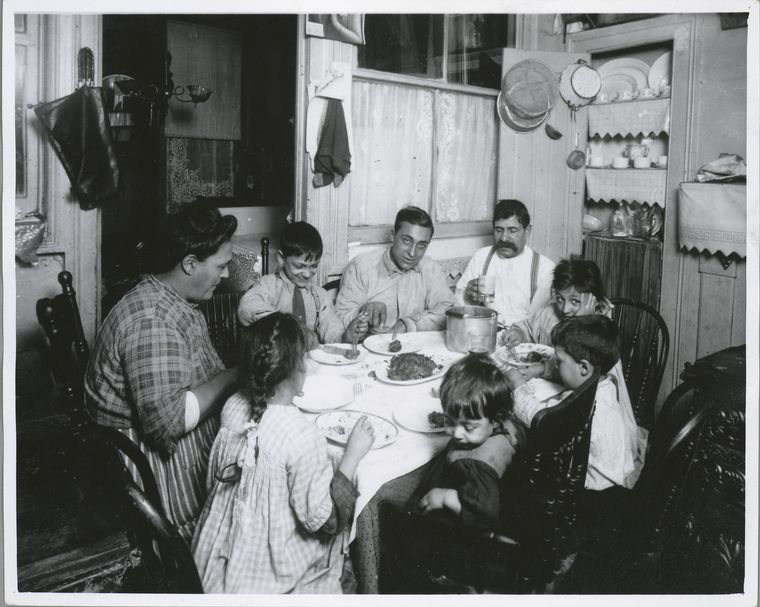
Comments
What a useful and thoroughly
Submitted by Sherri (not verified) on June 1, 2015 - 4:54pm
Great article - EXCEPT …
Submitted by Amy Stoller (not verified) on June 30, 2015 - 5:01pm
The caption for "typical
Submitted by Carmen Nigro (not verified) on July 1, 2015 - 4:06pm
Ugh
Submitted by Ugh (not verified) on September 27, 2015 - 1:21pm
An API to explore name semantics
Submitted by Elian @NamSor (not verified) on July 6, 2015 - 2:45am
Baby Names
Submitted by Andreas (not verified) on July 9, 2015 - 2:21pm
Americans relation to their familyname
Submitted by Bjarne Jensen (not verified) on March 30, 2016 - 4:26am
Baby names
Submitted by Esteban Cortazar (not verified) on July 26, 2016 - 8:25am
您分享了非常有价值的信息。您提供的信息是非常有用和有用的
Submitted by 不寻常的男婴名字 (not verified) on February 10, 2017 - 5:59am
Does anyone know what Jordan
Submitted by Guest (not verified) on January 17, 2018 - 8:47am
Happy American Family
Submitted by lyra (not verified) on January 28, 2018 - 4:46pm
I would think that in
Submitted by Richard Wood (not verified) on October 25, 2019 - 10:24am
Always cross-check name defintions
Submitted by Nancy Man (not verified) on March 19, 2018 - 12:05am
Name meaning
Submitted by Monique (not verified) on October 5, 2020 - 1:00pm
What a lovely idea. You can
Submitted by Carrie McBride on October 6, 2020 - 2:16pm